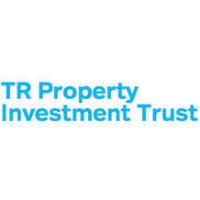TR Property Investment Trust PLC (LON:TRY), today announced financial Report for the half year ended 30 September 2018
|
Financial Highlights and Performance
|
At 30 September 2018 (Unaudited) |
At 31 March 2018 (Audited) |
% Change |
|
Balance Sheet |
|
|
|
|
Net asset value per share |
417.06p |
395.64p |
+5.4 |
|
Shareholders’ funds (£’000) |
1,323,531 |
1,255,559 |
+5.4 |
|
Shares in issue at the end of the period (m) |
317.4 |
317.4 |
|
|
Net debt¹ |
12.3% |
14.6% |
|
|
|
|
|
|
|
Share Price |
|
|
|
|
Share price |
408.00p |
382.50p |
+6.7 |
|
Market capitalisation |
£1,295 m |
£1,214m |
+6.7 |
|
|
|
|
|
|
|
Half year ended 30 September 2018 (Unaudited) |
Half year ended 30 September 2017 (Unaudited) |
% Change |
|
Revenue and dividends |
|
|
|
|
Revenue earnings per share |
9.25 p |
8.77p |
+5.5 |
|
Interim dividend per share |
4.90p |
4.65p |
+5.4 |
|
|
|
|
|
|
|
Half year ended 30 September 2018 (Unaudited) |
Year ended 31 March 2018 (Audited) |
|
|
Performance: Assets and Benchmark |
|
|
|
|
Net Asset Value total return² |
+7.4% |
+15.5% |
|
|
Benchmark total return |
+5.4% |
+10.2% |
|
|
Share price total return³ |
+8.6% |
+25.5% |
|
|
|
|
|
|
|
Ongoing Charges⁴ |
|
|
|
|
Including performance fee |
N/A |
+1.48% |
|
|
Excluding performance fee |
N/A |
+0.65% |
|
|
Excluding performance fee and direct property costs |
N/A |
+0.61% |
|
|
|
|
|
|
1. Net debt is the total value of loan notes and loans (including notional exposure to CFDs) less cash as a proportion of net asset value.
2. The total return NAV performance for the year is calculated by reinvesting the dividends in the assets of the Company from the relevant ex-dividend date. Dividends are deemed to be reinvested on the ex-dividend date as this is the protocol used by the Company’s benchmark and other indices.
3. The total return share price performance is calculated by reinvesting the dividends in the shares of the Company from the relevant ex-dividend date.
4. Ongoing Charges is an annual calculation therefore does not apply to the half-year.
Dividend
An interim dividend of 4.90p (2017: 4.65p) will be paid on 2 January 2019 to shareholders on the register on 30 November 2018. The shares will be quoted ex-dividend on 29 November 2018.
Chairman’s Statement
Introduction
We have had solid performance in the first six months of the financial year.
The Net Asset Value (NAV) total return for the six month period was 7.4%, which was ahead of the benchmark total return of 5.4%; our managers continue to generate outperformance. The share price total return was slightly higher at 8.6% as the Trust’s shares traded closely to NAV and occasionally at a premium.
The NAV grew until the end of August. As we edge closer to the BREXIT deadline of March 2019, investors are seeking higher risk premiums in view of the wide range of potential outcomes still available between the UK and the EU. These concerns are reflected by investors lacklustre demand for those listed companies with the greatest domestic UK exposure. Only a handful of London listed property stocks have meaningful overseas earnings.
As well as the performance widening between the two regions, it has also been characterised by a marked contrast between different asset classes. To outperform over the half year it has been necessary to select businesses with the right assets in the right geographical areas.
In terms of asset classes, we are far from alone in being wary of retail property regardless of its location. The opposite is true of logistics and industrial property assets where the rapid evolution in business to consumer supply chain technology continues to drive asset prices everywhere. Rented residential property with steady, reliable earnings growth also performed strongly and remains a core sector for the Trust, particularly in Germany and Sweden.
The stability of prime London office values has been a surprise and is a useful reminder that much global capital considers long term investment horizons. The ongoing weakness of GBP (particularly against USD) has contributed to record investment levels from overseas investors.
Our physical property portfolio valuation has remained virtually flat over the half year period despite our first tenant failure for many years. The value appreciation in our industrial assets compensated for this setback and there is a more detailed report below.
Revenue Results and Dividend
Revenue earnings of 9.25p per share are 5.5% ahead of the prior year (8.77p per share) .
Some growth in underlying earnings from our shareholdings in local terms were also given a slight tailwind by a marginal further weakening of Sterling over the period. This has been partly offset by an increase in the tax charge. More details are given in the Manager’s Report.
The Board has announced an interim dividend of 4.90p per share, 5.4% ahead of last year’s interim dividend.
Revenue Outlook
We expect the modest underlying growth in income to continue through the second half however the big unknown factor is the impact of currency. Although we have now received around 75% of our overseas income, with sentiment changing so frequently through the Brexit negotiations, significant currency changes could still have some impact in the current year.
We do expect the tax charge in the second half of the year to lead to a lower average charge for the year than is reflected in the half-year accounts. This is partly due to a further French withholding tax reclaim relating to earlier years received after the half-year. Further details are set out in the Manager’s Report.
Net Debt and Currencies
The level of gearing has reduced over the period from 14.6% to 12.3%. This was in part due to some corporate actions close to the half year end which returned cash to shareholders. Gearing stood at 14.5% by the end of October.
Currency exposure in respect of the capital account (as opposed to the income account referred to above) is maintained in line with the benchmark. Therefore the valuation of a significant proportion of the portfolio which is not denominated in Sterling, will increase if Sterling weakens and fall if the Sterling strengthens. The currency exposures of the portfolio are set out in a table in the full Half Yearly Report and Accounts.
Discount and Share Repurchases
The discount of the share price to the Capital Net Asset Value reduced over the period from 3.2% to 2.2% although there were some fluctuations over the period with the shares standing at a small premium at times. There were no share repurchases in the half year period.
The Board continues to encourage an active investor relations programme and launched a new dedicated website (www.trproperty.com) towards the end of May which provides current and background data on the Trust including an informative monthly fact sheet prepared by the Manager.
New Regulations
I commented at the year-end on my concerns regarding the new Key Information Documents which we have been obliged to publish since the introduction of the PRIIPs (Packaged Retail and Insurance-based Investment Products) regulation in January this year. We warned investors to view these with extreme caution as the calculations were prescriptive and did not reflect our views of likely future performance. The AIC (Association of Investment Companies) has been very vocal on this and recently published a document entitled “Burn before reading” pointing out the inherent flaws in these documents. The AIC stated that they are misleading and has called for the FCA to withdraw them until something more suitable was agreed. The FCA has invited the industry to comment on this and I have written to the Chairman of the FCA expressing our views and supporting the AIC’s position.
Outlook
As we move into the second half of the financial year, there appears to have been a change in the mood and equity markets around the globe have been subject to a sell-off.
Macro risks abound with the potential escalation in the US/China trade war whilst geo-political concerns are heightened. Closer to home Brexit dominates and the UK will be the hardest hit by a poor outcome, however collectively there are no economic winners from this negotiation and growth across Europe will also suffer. The European Union is also being put to the test again, this time by Italy’s breach of the budget deficit rules.
Whilst the ECB has flagged the termination of its bond buying programme (‘quantitative easing’) and signalled an intention to resume a normalised interest rate cycle we think that it is quite possible that this will be deferred further if economic growth is dampened. It is in this context that our Manager has sought to focus on secure earnings streams, often index linked, in sectors with lower earnings volatility such as student accommodation, private rented residential, healthcare, long income and away from development or consumer focused retail property. Crucially many of the companies we invest in are still growing their earnings and have a tenant base for whom ongoing occupation is business critical.
If interest costs continue at these very low levels the ability of many of these property companies to offer investors high, sustainable, growing earnings will underpin valuations.
Hugh Seaborn
TR Property Chairman






































